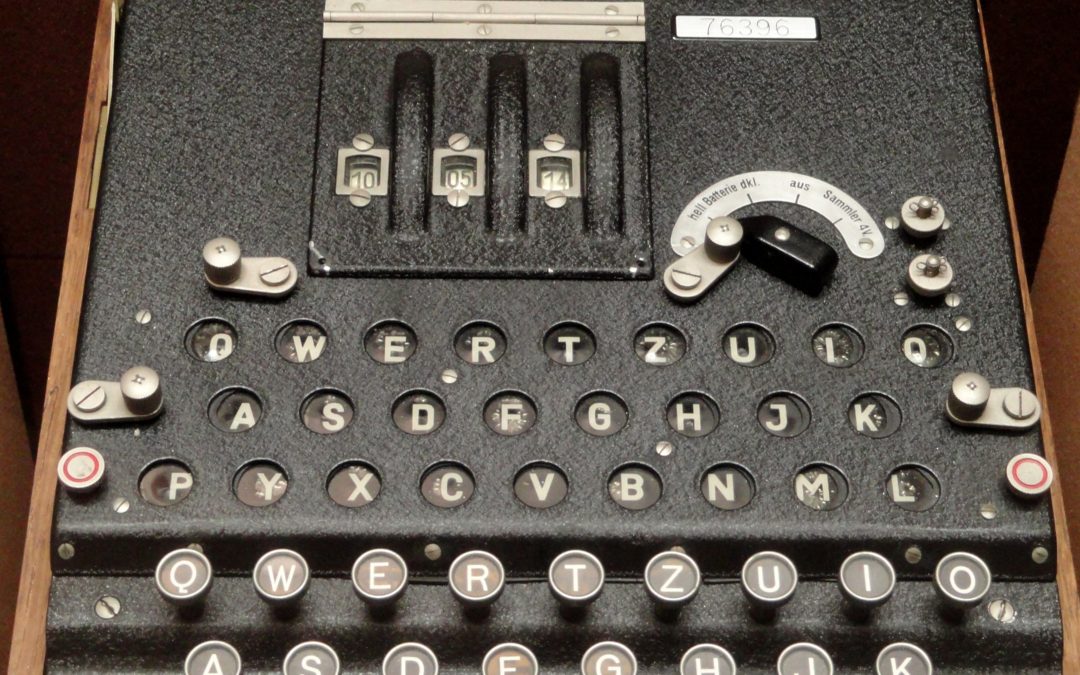My daughter asked me earlier this year, “Papa, if you aren’t doing anything wrong, why do you want to obfuscate your email traffic?”
Actually, I am sure that she did not say obfuscate, but her point is the same: If you are not doing anything wrong, why would you want to hide the contents of your online interactions? So, I did what any good dad would do, I answered her question with a question:
I asked “[redacted], are you doing anything wrong when you go to the bathroom?” Of course, she replied that she is not. I said, “Then why won’t you leave the door open?” And … like a good dad, I pressed.
We shut the bathroom (at least most of us do) and wear clothes for that matter, not because we are guilty, but because we are private people, and because there are things that are not the business of everyone else. Some things we hide because others wouldn’t understand, some because they are sin, some because they are no one else’s business, still others because we are ashamed (not because of wrong, but because of our fallen nature, or because it is unseemly: like our nakedness), and there are yet more reasons I could not think of, or could not articulate well.
I have been trying to secure my communication in light of Edward Snowden’s leaks about the NSA in the middle of last year. Like most people I have “nothing to hide”. But like fewer people (and like many others), I view my government with a measure of mistrust. (I say that largely because they are made of the same stuff as the rest of us: they are not a special sort of people that only work in the public interest, or from altruistic motives.)
At the time of the writing of the U.S. Constitution, those proponents and framers (Federalists, so-called) as well as those involved detractors (the similarly misnamed Anti-Federalists) recognized problems with human composition, something that Judge Andrew P. Napolitano calls, libido dominandi (a lust for power [over their peers]), something that Christ more generally calls, Sin.
The framers of the Constitution, and—to a greater extent—the people who sent their representatives to perfect the Articles of Confederation, recognized that men tended to desire greater power, and that those in power, being sinful, fallen, and depraved would abuse whatsoever they put their hands to (including the rule of others). With that in mind, they sought to restrict, or constrain the powers of those that would rule.
So, recognizing the fallen state of men, and their tendency to abuse their callings, their vocations, early Americans desired to formally limit the powers of those that would rule them.
George Mason among them (not exclusively), refused to advocate for the ratification of the Constitution without protections, i.e. a formal recognition of those rights that we see listed in our Bill of Rights.
The Bill of Rights reads like a lead cast of the grievances directed at the king. You could see those abuses that the King and his emissaries were guilty of in the Bill of Rights by considering antitheses of those ideas therein expressed.
There was not sufficient freedom of religion, the press, the right to possess—no bear—arms, the right to be secure in your property, free from coercion, free from government-initiated theft, and on….
Remember, those men were not entrenching the interests of criminals, but protecting law-abiding men from the overreach of their government. So, when they fashioned the Fourth Amendment, …
The right of the people to be secure in their persons, houses, papers, and effects, against unreasonable searches and seizures, shall not be violated, and no Warrants shall issue, but upon probable cause, supported by Oath or affirmation, and particularly describing the place to be searched, and the persons or things to be seized.
… they did not desire to protect base, loose, profane, and criminal men from government(s). They intended to protect citizens from overreaching, unchecked magistrates. If you have nothing to hide, hide it. They have no right to see it. They are properly, legally constrained from abusing us.
In a place where we cannot even agree that Frank Korematsu should have been free, or that Angel Raich should be able to use marijuana medicinally to mitigate her wasting disorder, we need to be able to avoid self-incrimination. Because an abusive government like ours will incarcerate and incriminate honest men.

